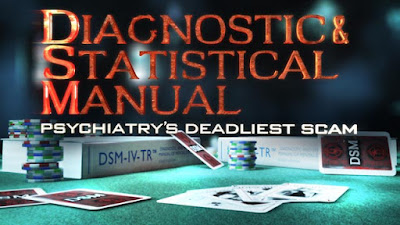""According to a shocking statistic from the Department of Veterans Affairs from 2013, 22 U.S. military veterans were committing suicide every day. And while the figure may have tempered somewhat since then, it still remains high.
There have been a number of "mainstream" reasons given for the high suicide rate among military members. Deployment to one or both of the recent "war on terror" combat zones in Iraq and Afghanistan has been blamed, though that was debunked somewhat in findingsearlier this year. According to that study, there were some "patterns" that were identified:
— Members who left the military early had a 63 percent higher suicide rate than those who had not yet left the service;
— Those with the fewest years of military service were more at risk;
— Those who served a short stint – less than four years – were at higher risk than those who left after serving four or more years, whether they had been deployed or not.
While the study did not examine potential reasons for these identified trends, the authors did speculate that difficulty finding employment, losing their identity with the military and the need to find new social support may have all played a role.
Conspiracy revealed
But a recently released documentary featuring Natural News editor Mike Adams, the Health Ranger, offered another view, based on evidence examined: psychiatry and, more specifically, its conspiracy against the U.S. military.
The documentary, The Hidden Enemy: Inside Psychiatry's Covert Agenda, produced by the Citizens Commission on Human Rights, details psychiatry's rise in the military, from World Wars I and II to its prominence today, laying bare a sinister conspiracy to use men and women in uniform as nothing more than guinea pigs.
When the "war to end all wars" broke out, psychiatry was first introduced into the military. In Germany, soldiers who were unwilling to return to the hellish trench warfare at the front were subjected to what was called the "Kaufmann Cure." However, in reality, it was anything but a cure. Rather, it was a procedure that involved shooting painful electrical currents through the soldier's body while a practitioner intoned hypnotic suggestions. Victims of this "treatment" rightly deemed it a form of torture, but the Kaufmann Cure was widely seen as successful by psychiatrists because it did indeed induce terrified soldiers to return to the front lines, and in a rush.
Mainstreaming psychiatry and psychotropic drugs
When World War II began, psychiatrists had made inroads into the militaries of many nations. And it was through the military that psychiatrists finally achieved newfound status as "medical doctors." But influence over the psychology of the military was just a small fraction of what psychiatrists had planned.
On June 18, 1940, Brig. Gen. J. R. Rees, a psychiatrist, stood before the Annual Meeting of the National Council for Mental Hygiene to outline psychiatry's ambitions for the future:
We must aim to make it [psychiatry] permeate every educational activity in our national life... Public life, politics and industry should all of them be within our sphere of influence.
And by any measure, that effort has been successful.
As noted in the film, the dramatic rise in military suicides today can be directly linked to a similar dramatic rise in military personnel being prescribed mind-altering psychotropic drugs for "mental health conditions" that have never been scientifically validated.
But why? What makes today's fighters so much less capable than those of earlier periods?
More than just the soldier is at risk
Is it "combat stress"? That's the reason being given by the military psychiatric community. But the very visible effects of combat stress have been chronicled by warriors, writers and other observers going back to ancient times; the lethality and brutality of combat has been much worse in the past than today.
In the documentary, a number of former military members recall how they were routinely prescribed a witch's brew of antidepressants and other mood-altering drugs for their "conditions," many of which were prescribed without proper testing or evaluation. Physicians and psychiatrists who were interviewed lamented the heavy use of psychotropic and other mood-altering drugs as well in the military.
The documentary also makes note of a number of high-profile murders by current and former military members who were also taking psychotropics at the time of their crimes.""






No comments:
Post a Comment